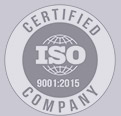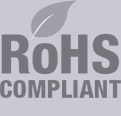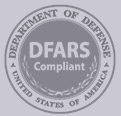We Are a Fully RoHS-Compliant American Company
Leave a Comment
Any North American company that wishes to be competitive in the early 21st century would do well to adopt RoHS compliancy. Now… just what, exactly, is “RoHS”? Good question. It’s an acronym that stands for “Restriction of Hazardous Substances Directive”, a regulation adopted into law by the European Union in mid-2006. The resolution bans six “hazardous” substances in the manufacturing of various industrial products. More specifically, it bans the use of lead, mercury, cadmium, hexavalent chromium, ploybrominated biphenyls, and polybrominated diphenyl ether (the last two are flame retardant compounds that have a long history of application in plastics-making). Any company thinking about manufacturing and/or supplying products carrying these toxic substances – at least any company wishing to do business in the European Union, the world’s largest single consumer market – will have to think twice.
What are the sorts of electronic items that RoHS standards apply to specifically? The list runs the gamut from the low-tech to the cutting-edge. Lead-based or cadmium-based paints and pigments, power cords, USB cables, solders, printed circuit board finishes, metal parts, lamps, light-bulbs, and batteries of all different costs and performance levels are among the primary items cited for regulation. Being that much of our business at PMI comes from Europe and/or from North American companies doing extensive business with Europe, our company has rolled with the various restrictions in order to insure that safety comes above all else. We can supply both mainstream and customized components that meet most industry compliances from any angle. In today’s increasingly globalized supply chain network, where a single application can swap continents multiple times before it is completed, RoHS compliance is a wise – and potentially profitable – measure to adhere to.
What are the sorts of electronic items that RoHS standards apply to specifically? The list runs the gamut from the low-tech to the cutting-edge. Lead-based or cadmium-based paints and pigments, power cords, USB cables, solders, printed circuit board finishes, metal parts, lamps, light-bulbs, and batteries of all different costs and performance levels are among the primary items cited for regulation. Being that much of our business at PMI comes from Europe and/or from North American companies doing extensive business with Europe, our company has rolled with the various restrictions in order to insure that safety comes above all else. We can supply both mainstream and customized components that meet most industry compliances from any angle. In today’s increasingly globalized supply chain network, where a single application can swap continents multiple times before it is completed, RoHS compliance is a wise – and potentially profitable – measure to adhere to.




